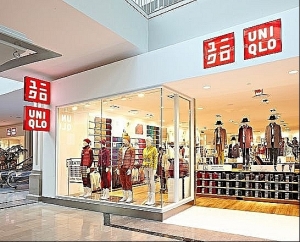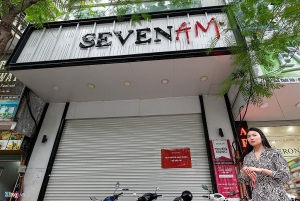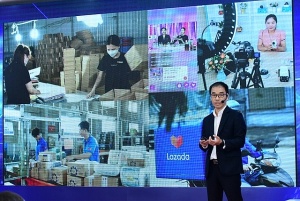Dreamship and Stripe help Vietnamese print business expand abroad
 |
| Bill Bricker, Dreamship's founder |
Dreamship has built a strong partnership ecosystem. Tell us more about how these partnerships contribute to the success of Vietnamese e-commerce?
Dreamship started with an ethos of bringing "ethical ecommerce" into the space. Our thesis was that if we were able to show entrepreneurs a path to do things the right way, we could unlock the channels and tech necessary for them to thrive.
Fortunately, that vision resonated with executives at Google, with whom we partnered with early on. Google's and Dreamship were able to draw the very best teams and onboard them to a previously inaccessible channel. This exclusive partnership helped Google expand into Vietnam while protecting their global brand, growing revenue from the ground up for Google Ads, our clients, and Dreamship alike.
Our approach is to curate partnerships with best-in-class tech organisations to create a win-win for all stakeholders involved. Dreamship's partnership growth playbook, which was built over five years and still followed to this day, has helped unlock access to the likes of Shopify, PayPal, Payoneer, Amazon, Stripe, and Twitter.
How does Dreamship support the growth of Vietnamese e-commerce and empower local entrepreneurs to create sustainable brands?
A sustainable brand is fairly simple. It means: Do the right thing at all times. While that might be easier said than done, this simple first principle is one we've challenged ourselves, our clients and partners to live up to, which has served well to empower this growing entrepreneurial market.
Once customers (and all stakeholders) know you will have your back when times are tough and even if it costs extra money or effort, you will have built a sustainable brand powered by Dreamship.
What are Dreamship's future aspirations and plans for expansion in Vietnam and other markets, and how do you see the company evolving?
Our core focus will always be to meet our clients, and their customers, where they need us. While we see the changing e-commerce landscape as more of an opportunity than a threat for the talented entrepreneurs we serve, we acknowledge we need to stay agile to stay relevant.
Changing tides at both a macro and micro level contributes to the perpetually shifting ecommerce landscape you've alluded to. Dreamship's platform is intentionally designed to combine the flexibility to add new (physical and digital) product offerings on-demand and the automated tech to scale with (and for) our clients when the opportunity calls.
How does Dreamship ensure the reliability and quality of its fulfilment network, and what measures does it take to mitigate risks and ensure customer satisfaction?
Dreamship's brand is based on the strength of our fulfilment network that we've cultivated in two primary ways: the long term partnership, and high-fidelity data and automation.
For the first factor, we have building an insightful long term partnership with industry leaders. The vast majority of the time, there are no quality/SLA issues because our supply partners represent the best of the best in on-demand manufacturing. In the rare case an issue does arise, we are aligned and insist on making it right by our stakeholders, regardless of cost. We have SLA's and contractual agreements, but more importantly, we have built trust together over time by relying on each other for both current and future business we've earned together.
Regarding the high-fidelity data and automation, we've built out the people, processes and technology to standardise on-demand fulfilment at scale, which historically has been arduous. Suppliers and client partners alike appreciate the level of visibility and simplicity that Dreamship offers.
Internally, we track every component of the order/fulfilment flow at a very granular level, and can proactively identify issues and take pre-emotive actions, like load-balancing or auto-rerouting before constraints are hit.
As a print-on-demand platform, how does Dreamship differentiate itself from competitors in the Vietnamese market?
We remove any barriers to creation, which helps increase clients' revenue in three key ways, including being their most trusted fulfilment partner for on demand, quality products, providing real-time visibility to empower better decision-making and eliminating friction to partnering and scaling with us.
 | Japanese fast fashion brands take over Vietnamese brands After Stripe International’s purchase of NEM, Vietnam saw another deal between a Japanese fast fashion brand UNIQLO and local women’s apparel company Elise. |
 | Fashion chain troubled over label fraud suspicions Fashion chain SEVEN.AM closed its stores after authorities began investigating allegations that the brand replaced "Made in China" labels on its products with Vietnamese ones, while other brands like NEM and IFU are also drawn into suspicion. |
 | Next era of e-commerce: Digital transformation with sustainable development E-commerce in Vietnam has entered a new era, focusing on sustainable development and digital transformation to become a driver of the economy. |
 | Report shows e-commerce trending towards sustainability Sustainable eCommerce will connect individual shopping behaviors towards long-term shopping trends including search, selection, purchase, payment and exchange. |
 | Vietnam’s e-commerce market to reach $20 billion by year end Vecom forecasts Vietnam’s e-commerce market will increase by 25 per cent to US$20 billion by year end. |
What the stars mean:
★ Poor ★ ★ Promising ★★★ Good ★★★★ Very good ★★★★★ Exceptional
Related Contents
Latest News
More News
- The PAN Group acquires $56 million in after-tax profit in 2025 (February 03, 2026 | 13:06)
- Young entrepreneurs community to accelerate admin reform (February 03, 2026 | 13:04)
- Spring Fair 2026 launches national fair series (January 30, 2026 | 16:17)
- SnP celebrates 10th anniversary with new brand identity (January 30, 2026 | 14:41)
- Sci-tech sector sees January revenue growth of 23 per cent (January 30, 2026 | 11:20)
- Vietnam–Singapore partnership strengthens board leadership (January 30, 2026 | 11:02)
- DIGI-TEXX expands footprint with new hub in Ho Chi Minh City (January 30, 2026 | 09:04)
- Vietnamese spend $2.1 billion on food delivery apps in 2025 (January 29, 2026 | 15:14)
- Japan's NTT DATA signs agreement with CMC Global (January 29, 2026 | 15:03)
- Japfa Vietnam hosts annual customer conference (January 29, 2026 | 12:07)

 Tag:
Tag:

















 Mobile Version
Mobile Version